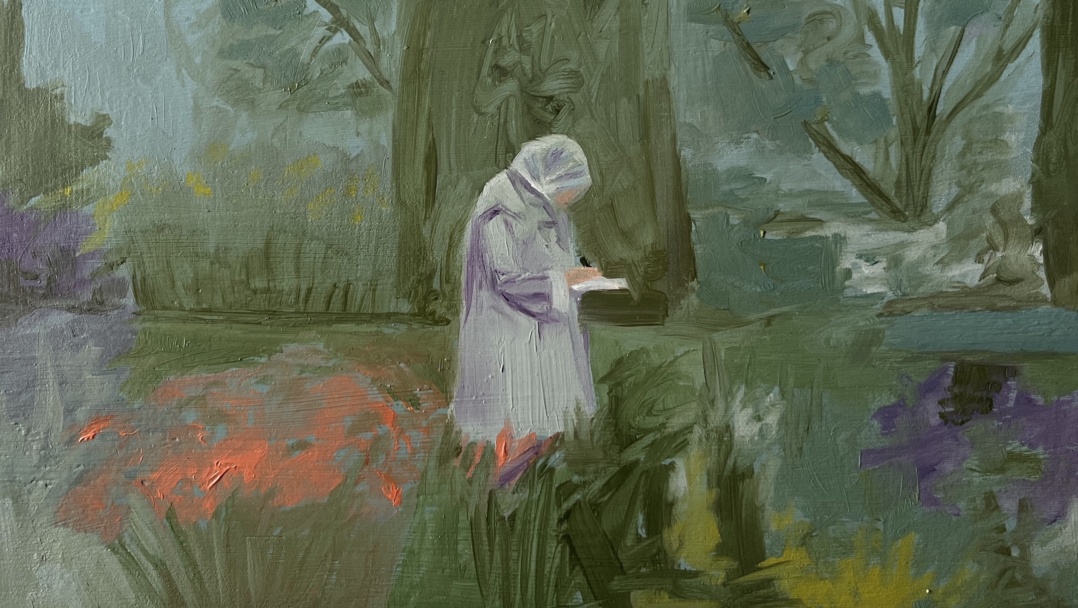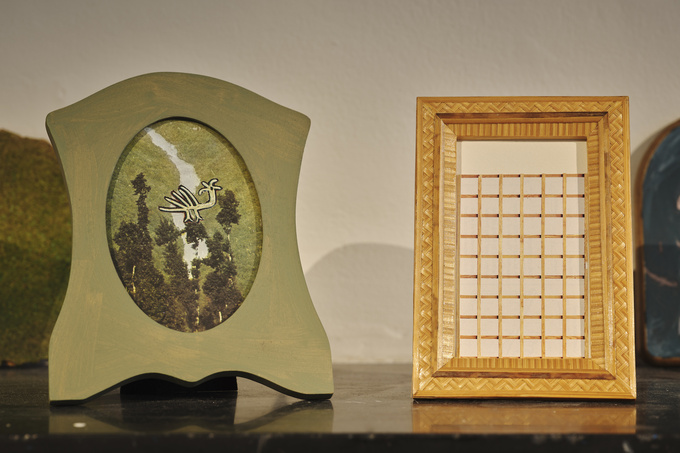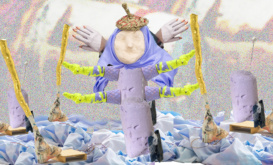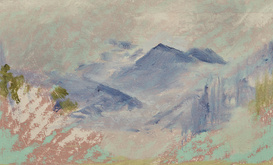Laura McMorrow presents a series of small-scale paintings based on her research into gardens. The paintings draw on found imagery of figures working in the garden, altered landscapes (topiary and hedging), plants, and people enjoying gardens and green spaces. Join us for the opening reception on Friday 18 October, 6—8pm.
Laura learned everything she knows about gardening from her mother Gillian. An avid gardener and obsessive weeder, Gillian tended to her garden in North Leitrim by making decisions about which plants belong and deserve to self-seed and which become a nuisance. Her approach to gardening was naturalistic and looked effortless, but she was extremely dedicated to her craft.
Out in the garden, in all weather until dusk, it became a form of therapy for her as she suffered with a chronic and fatal illness. The garden became a sanctuary for Gillian and a source of inspiration for Laura who began researching and making work about gardens in her studio practice. Poet and gardener Ross Gay describes time spent gardening as “an exercise in supreme attentiveness”, a trait it shares with painting.
A stop motion animation created using a paint on glass technique is exhibited alongside the paintings. Each frame is hand painted, giving it a painterly and expressive aesthetic. The animation illustrates a quote by the filmmaker Derek Jarman in the book Modern Nature, a journal of his time spent gardening in Dungeness shortly after he discovered he was HIV positive.
"The gardener digs in another time, without past or future, beginning or end. A time that does not cleave the day with rush hours, lunch breaks, the last bus home. As you walk in the garden you pass into this time — the moment of entering can never be remembered. Around you the landscape lies transfigured. Here is the Amen beyond the prayer."
Laura is interested in a personal exploration of the garden as a sanctuary and a space of refuge. However, she is also questioning the complexity of gardening in a time of climate emergency and the futile act of attempting to control and tame nature. The transition to a more ecologically friendly approach to gardening, for example growing a wildflower meadow instead of a lawn. Laura embraces this duality of gardening as a form of therapy and its disposition in the greater context of our time.




